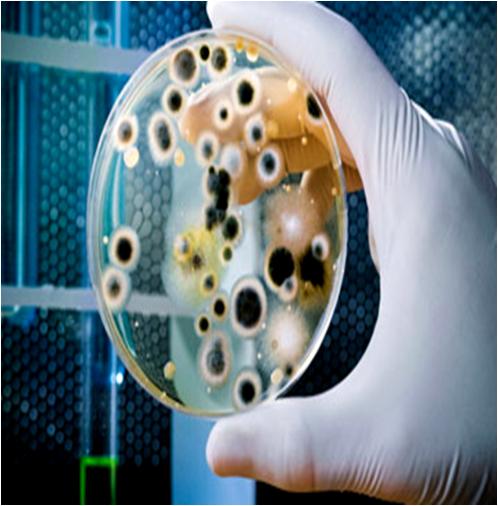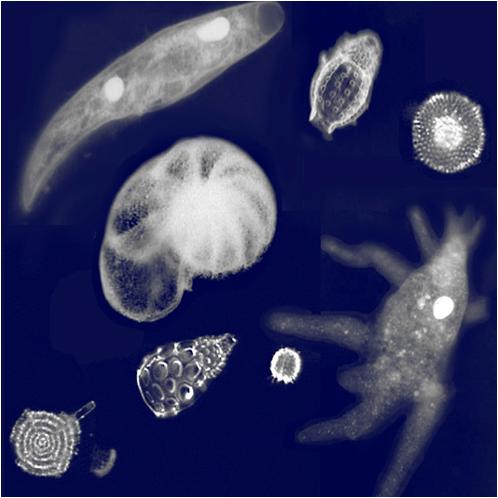Difference between Protozoa and Bacteria

Protozoa and bacteria are two widely studied microorganisms. They cannot be seen under conventional microscopes but have crucial roles in several natural processes. They help in the fermentation process, balance the environment around us, assist in overcoming pollution by decomposing pollutants and . Both bacteria and protozoa are microscopic creatures, yet they posses several distinguishing qualities, especially in structure, formation, taxonomy, diversity and in other biological aspects.
Protozoans belong to a sub-group of kingdom “Protista”, which falls under the Eukaryotic domain, while bacteria could be illustrated as a whole different taxonomical domain. The number of known bacteria species is lower than that of protozoa, but the actual number of bacterial species is very much greater than the number of protozoan species.
Protozoans are eukaryotes (with a nucleus and membrane-bound organelles), whereas bacteria are prokaryotes (organisms without membrane-bounded nucleus or organelles).
Bacteria are extremophiles, i.e. organisms with the ability to bear environmental extremes. Protozoans, on the other hand, are not extremophiles at all. The overall body sizes and structures of protozoans are usually more complex compared to bacteria.
Instructions
-
1
Bacteria
Bacteria are unicellular (one-celled) organisms that are useful in several processes. However, few species are multicellular, especially pathogenic bacteria. Bacteria are so small that under ordinary microscopes you can only observe them as small dots. They normally range in size from 0.2 to 1 micron wide and less than 1 to 10 microns long. A large amount of bacteria are only visible using electronic microscopes. Some species of bacteria however grow to bigger sizes and have unique shapes. These free-living creatures are either parasitic i.e. obtain food from other organisms, or live independently. They are found in three common shapes, including bacillus, coiled (spiral) and coccus. Bacteria reproduce by cell division, multiplying themselves exponentially.
Image Courtesy: futurity.org
-
2
Protozoa
Protozoans are unicellular creatures that can only split within a host organism. They belong to kingdom protista and are heterotrophic. They cannot make their own food and depend on compound organic substances for nourishment. They can act as parasites or predators, living inside the body of their prey. You can usually find them on the surface of the earth or in water. They exist in multiple shapes and reproduce asexually. Microscopic protozoans are smallest of all animals and are pale in color. They are quite flexible, as they do not possess an endo or exoskeleton.
Image Courtesy: bio.rutgers.edu







